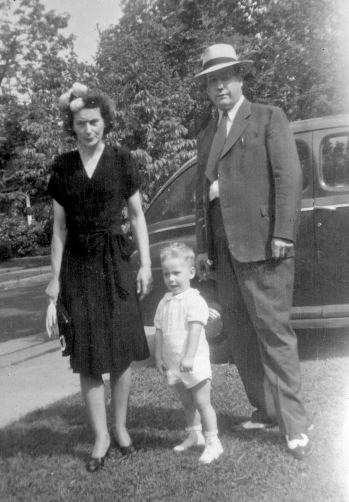Neither he nor she needed many people. Feeling unassimilated was no more unfamiliar than feeling assimilated.
In Jackson, then, they rented half a duplex, four small rooms including a bath, in the older central part of town. North Congress Street, down the hill from the capitol building. The flat came with an option to buy. There were old mansions up the street where legislators and hillbilly musicians took rooms, and where you could buy lunch or dinner. My mother was not a good cook, and they were used to eating out. There was a small yard front and back, a garage, neighbors, some older established houses where elderly widows peered out at you through the screens. These were already being converted to apartments. It was transitional. It was where you started if you came from someplace else.
I was born in the warm winter of 1944, in February, at the Baptist Hospital, at two A.M. I don’t know if they cared that I would be a boy or a girl. But they were overjoyed—so they said—by me and by having made the commitment to live in Jackson and for their life to be altered in these ways. I don’t know if my father was present for my birth. It was a Wednesday. He would normally have been on the road. Witnessing a birth wasn’t so much a thing people did then. My mother’s mother came down from Little Rock. None of his family chose to.

Edna, Richard, and Parker, Jackson, Mississippi, 1946
How would they work it all out—from an indistinct, undemanding future, to having a child, which is a very distinct future? She would now be what she had never been—a housewife-at-home alone, with a child. A mother. She must’ve believed she was cut out for it. It was the more usual life. Things had been good up to now, and this might have seemed good, too—with the exception of my father’s new absences.
For him, it would’ve been different, too. There was no single way to perform fatherhood—though he wouldn’t have had those words. It wouldn’t be good to be without her, having always had her—in the car with him, listening to her talk, enjoying her, eating with her, sleeping with her, letting himself be guided by what she thought and liked and wanted. Just seeing her. This was life he would miss. She was wide. He was less so. It had been all but perfect. Did he feel they were giving up something important? Was he ready for all of it? Probably he was, but no one asked the question in 1944. He would be gone now from Monday to Friday, even longer at the remoter reaches of his territory—Jackson, Tennessee.
1 comment